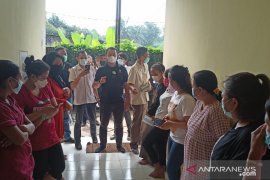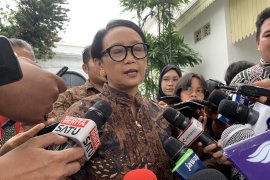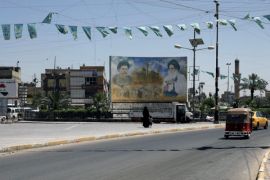Maliki this week sought Sunni Vice President Tareq al-Hashemi`s arrest on terrorism charges and moved to fire a Sunni deputy. On Thursday at least 72 people were killed in Baghdad by bombings in mainly Shi`ite neighbourhoods.
The events threaten to splinter Iraq`s fragile sectarian and ethnic faultlines and highlight the risk of the country tumbling into the kind of bloody slaughter that a few years ago led the OPEC oil-producer to the edge of civil war.
After Friday prayers, with Sunni imams warning Maliki was seeking to foment sectarian divisions, protesters were on the streets of Sunni-dominated Samarra, Ramadi, Baiji and Qaim, many waving banners in support of Hashemi, and criticising the government.
"The charges against Hashemi were orchestrated behind closed doors. Maliki is trying to remove Sunnis from power to get a tight grip, like as a new dictator of Iraq," said Ahmed al-Abbasi, a+ protester from Samarra.
The crisis could scuttle a delicate power-sharing agreement that splits posts among Shi`ite, Sunni and Kurdish leaders just days after the last American troops withdrew nearly nine years after the invasion to oust Saddam Hussein.
"What`s happening in Iraq is settling political scores," Iyad Allawi, Maliki`s predecessor and head of the Sunni-backed Iraqiya bloc, told al-Arabiya television.
An emergency session in parliament among leaders of political blocs to debate the crisis was cancelled on Friday.
For many Sunnis who feel marginalised by the rise of Iraq`s Shi`ite majority since the fall of Saddam, Maliki`s measures have deepened worries the Shi`ite leader is making a power grab to consolidate Shi`ite power.
"Hashemi, fear not, with our blood we support you," one banner read in Samarra.
Hashemi denies charges his office ran an assassination squad. After the interior ministry broadcast what it said were confessions from Hashemi`s bodyguards, the Sunni leader left for semi-autonomous Iraqi Kurdistan, where he is unlikely to be handed over to central government authorities. (M014)
Editor: Kunto Wibisono
Copyright © ANTARA 2011










